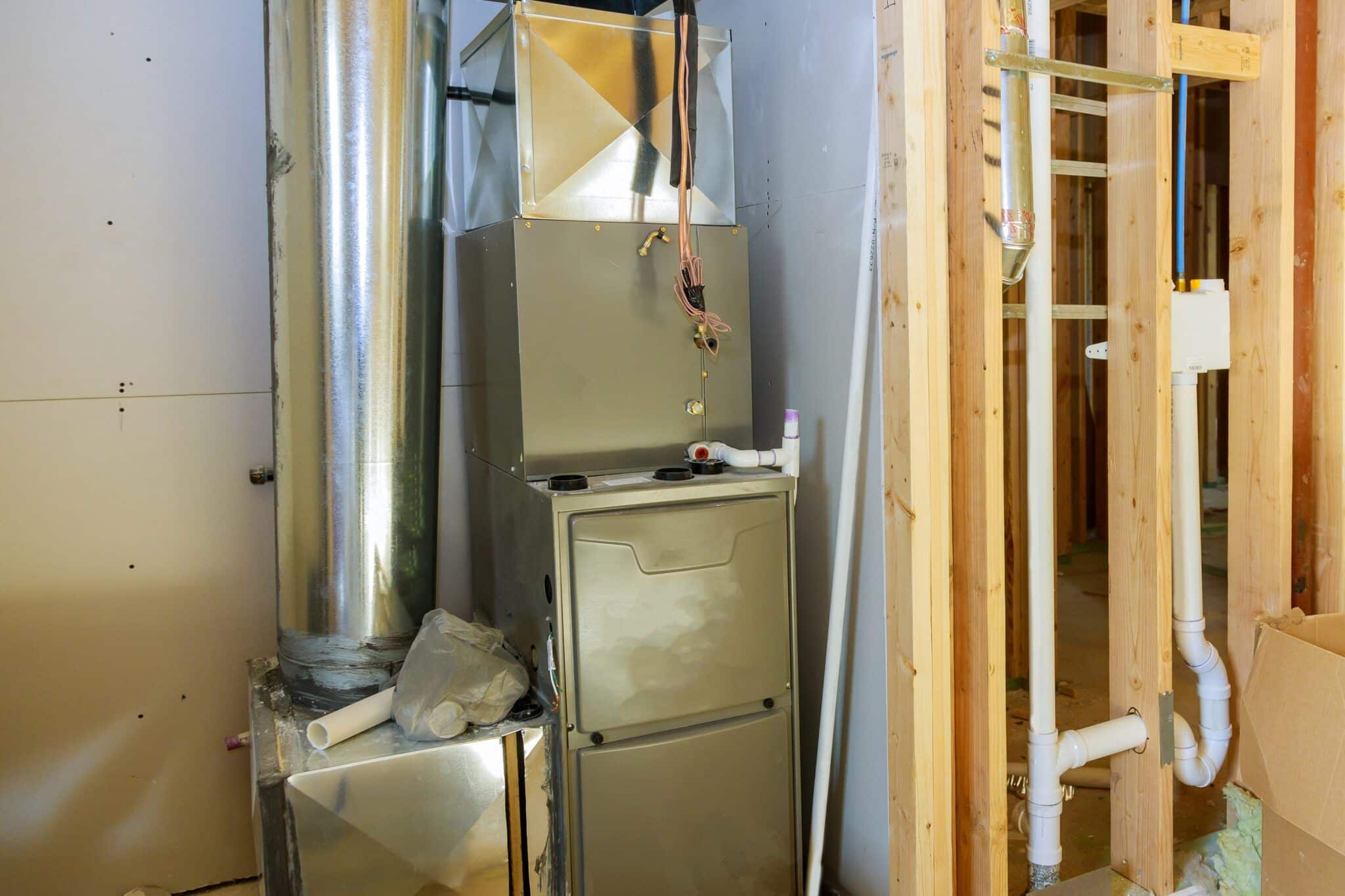
Optimizing HVAC for Converted Spaces Like Attics and Basements
Optimizing HVAC systems in converted spaces like attics and basements is key to turning them into comfortable, energy-efficient living areas. Without proper HVAC adjustments, these spaces often suffer from uneven temperatures, poor ventilation, and higher energy costs. Addressing these challenges ensures your home’s overall comfort and functionality while keeping energy usage under control.
One Hour Air Conditioning & Heating of Dallas, serving Farmers Branch, TX, specializes in crafting solutions tailored to these unique spaces. Their expertise transforms converted areas into cozy, year-round havens that blend efficiency with comfort. Trust their team to maximize the potential of your attic or basement.
Understanding the Challenges of Converted Spaces
Converted spaces, like attics and basements, present unique challenges that can significantly impact the efficiency and effectiveness of your HVAC system. Insulation difficulties are a primary concern, especially in attics. Without proper insulation, attics are prone to temperature extremes—overheating in summer and freezing in winter. Similarly, basements, often surrounded by cold, damp ground, can lose significant heat if insulation is insufficient.
Moisture control is another common issue, particularly in basements. These areas are highly susceptible to excess moisture, which can lead to mold growth, unpleasant odors, and damage to walls and floors. In contrast, attics may experience dryness that contributes to air quality concerns and can exacerbate issues like cracking wood or dry air discomfort during colder months.
Temperature regulation remains a significant hurdle in both spaces. Because converted areas often lack direct integration with the central HVAC system, air circulation can be uneven. This forces your HVAC system to work harder to compensate, driving up energy costs and reducing overall efficiency.
By addressing these challenges—through proper insulation, dehumidifiers, and tailored HVAC solutions—you can optimize these spaces for year-round comfort while protecting your HVAC system from unnecessary strain. Investing in professional assessment ensures every element works in harmony for maximum efficiency.
Assessing Your Current HVAC System
Converting attics and basements into livable spaces can dramatically enhance your home’s functionality, but it also adds new demands to your HVAC system. Optimizing HVAC performance in these spaces starts with understanding whether your existing system can handle the increased workload. Skipping this critical step can lead to discomfort, inefficiency, and costly repairs.
Spot Warning Signs Early
Start by evaluating your system’s current performance. Uneven temperatures, frequent on-and-off cycling, or rising energy bills may indicate your system is already working too hard. Adding the heating and cooling requirements of a converted attic or basement could overburden the system, causing reduced comfort and efficiency.
Understand System Load and Capacity
Every HVAC system is designed to handle a specific load, based on the size and insulation of your home. Converted spaces significantly increase this load, especially if they are poorly insulated or ventilated. An undersized system will struggle to keep up, while an oversized unit may cycle inefficiently, wasting energy and shortening its lifespan. Optimizing HVAC capacity ensures your system is appropriately scaled for the additional demand.
Consult a Professional Assessment
A professional HVAC technician can accurately calculate your system’s capacity and determine whether upgrades are necessary. They may recommend solutions such as installing ductless mini-split systems for independent temperature control, upgrading your current unit to handle the increased load, or implementing zoning systems to direct airflow precisely where it is needed.
Safeguard Efficiency and Comfort
Proper assessment not only prevents your HVAC system from becoming overworked but also ensures your converted spaces remain comfortable year-round. Optimizing HVAC systems for these unique areas increases efficiency, reduces energy costs, and extends the life of your equipment.
By addressing these steps, you create a seamless transition for your converted attic or basement while maintaining a comfortable and energy-efficient home environment.
Insulation and Air Sealing
Insulation and air sealing are foundational to optimizing HVAC performance in converted spaces like attics and basements. Without these critical elements, even the most advanced HVAC system will struggle to maintain comfort and efficiency. Tackling insulation and air sealing issues transforms these areas into energy-efficient, climate-controlled extensions of your home.
Prioritize Insulation Upgrades
Poor insulation is a common issue in attics and basements, where temperature extremes are most pronounced. Attics, exposed to direct sunlight, often become heat traps in summer, while basements absorb cold from the surrounding earth. Adding high-quality insulation materials, like spray foam or rigid foam boards, creates a thermal barrier that reduces strain on your HVAC system and minimizes energy loss.
Seal Air Leaks Thoroughly
Small gaps around windows, doors, or ductwork can lead to significant energy waste. Air leaks let conditioned air escape and allow outside air to infiltrate, forcing your HVAC system to work overtime. Applying caulk, weatherstripping, or expanding foam to seal cracks and joints ensures better temperature control and boosts system efficiency.
Optimize for Humidity Control
Proper sealing also helps manage humidity levels, particularly in basements, where moisture is a frequent issue. Controlling humidity improves air quality, reduces mold risks, and ensures your HVAC system operates more effectively in maintaining desired conditions.
Hire a Professional for Lasting Results
Insulation and sealing may seem straightforward, but professional installation ensures comprehensive coverage and avoids costly mistakes. Experts assess unique challenges in converted spaces and recommend the most effective solutions to maximize HVAC performance and energy savings.
Enhancing insulation and addressing air leaks reduces energy bills, extends your HVAC system’s lifespan, and creates a more comfortable, functional space.

Ventilation Strategies
Ventilation is a key component in optimizing HVAC systems for converted spaces like attics and basements. These areas often face unique challenges such as moisture buildup, poor air quality, and inconsistent airflow, which can lead to discomfort and inefficiency. Addressing these issues with targeted ventilation strategies ensures that these spaces remain livable, efficient, and healthy.
Combat Moisture in Basements
Moisture buildup is a common problem in basements due to their below-ground location, which makes them prone to dampness and humidity. Excess moisture can cause mold growth, structural damage, and unpleasant odors. Dehumidifiers are a highly effective tool for maintaining ideal humidity levels, while exhaust fans remove stale, damp air, creating a dry and comfortable environment.
Improve Airflow for Consistency
Poor airflow in attics and basements can lead to uneven temperatures and discomfort. Ridge vents, soffit vents, and attic fans are excellent solutions for improving air circulation in attics, preventing heat buildup in summer and condensation in winter. In basements, exhaust fans and additional ventilation ensure consistent airflow, maintaining a balanced climate year-round.
Enhance Indoor Air Quality
Without adequate ventilation, converted spaces can harbor allergens, pollutants, and stale air, impacting your home’s overall air quality. Using energy-efficient dehumidifiers and exhaust fans improves air circulation, expels contaminants, and introduces fresh air, promoting a healthier environment for your family.
Protect Your HVAC System
Ventilation reduces the workload on your HVAC system by preventing moisture buildup and maintaining a consistent indoor climate. This not only improves system efficiency but also extends its lifespan, ensuring your investment in optimizing HVAC systems pays off in the long run.
By prioritizing ventilation strategies, you can transform your attic or basement into a safe, comfortable, and energy-efficient space that seamlessly integrates into your home’s overall climate control system.
HVAC System Upgrades
Upgrading your HVAC system is essential when converting attics or basements into livable areas. These spaces introduce unique heating and cooling demands that challenge your existing system’s capabilities. Ensuring optimal performance and comfort requires a tailored approach to optimizing HVAC efficiency and functionality.
Recognizing When to Upgrade
An older or undersized HVAC system may already struggle to maintain consistent temperatures. Adding converted spaces to its workload could result in inefficiency, higher energy bills, and faster wear and tear. A professional evaluation can identify whether your current system is adequate or if upgrading to a more robust unit is necessary. Optimizing HVAC performance in this way ensures consistent comfort and system longevity.
Benefits of Adding Separate Units
For spaces like attics and basements, extending your central HVAC system might not be practical. Adding separate units, such as ductless mini-splits, provides a dedicated climate control solution tailored to the unique needs of these areas. This approach not only enhances comfort but also prevents overburdening your primary system, ensuring it runs efficiently.
Why Choose Ductless Mini-Split Systems
Ductless mini-split systems are a game-changer for converted spaces. These energy-efficient units deliver targeted heating and cooling without requiring ductwork, making them perfect for hard-to-reach areas. They allow independent temperature control, ensuring optimal conditions without affecting other parts of the home. By optimizing HVAC with mini-splits, you can achieve consistent comfort and reduce energy costs.
The Long-Term Value of Optimization
Upgrading your HVAC system for converted spaces is an investment in both comfort and efficiency. Modern systems offer features like variable-speed motors, smart thermostats, and zoning options that improve performance and lower energy bills. Optimizing HVAC not only meets the demands of your newly converted spaces but also safeguards the efficiency and reliability of your entire system.
Focusing on strategic upgrades and tailored solutions ensures your converted spaces are comfortable, energy-efficient, and seamlessly integrated into your home’s climate control system.
Zoning Systems for Enhanced Control
Zoning systems are an innovative solution for optimizing HVAC performance in converted spaces like attics and basements. These systems divide your home into distinct zones, allowing you to control temperatures independently in each area. This tailored approach improves comfort while enhancing energy efficiency and reducing wear on your HVAC system.
How Zoning Works
Zoning systems rely on motorized dampers installed in your ductwork to regulate airflow to specific zones. Each zone is connected to its own thermostat, giving you precise control over temperatures. This is particularly useful for optimizing HVAC in spaces like attics and basements, which often have different heating and cooling requirements than the rest of the home.
Custom Comfort for Challenging Spaces
Attics and basements frequently experience extreme temperature fluctuations due to their location and insulation limitations. Zoning allows you to optimize HVAC performance by maintaining specific temperatures in these areas without over-conditioning other parts of the home. For example, you can keep your attic cool in the summer while ensuring your basement stays warm in the winter.
Energy Efficiency Advantages
By directing heating and cooling only to occupied areas, zoning systems reduce energy waste. This not only lowers utility bills but also extends the life of your HVAC system by preventing unnecessary strain. Optimizing HVAC through zoning ensures your home remains efficient and comfortable year-round.
Smart Technology Integration
Zoning systems are compatible with smart thermostats, offering advanced features like remote control, scheduling, and energy usage tracking. These capabilities make it easier to manage and optimize HVAC performance across multiple zones, providing convenience and cost savings.
Implementing zoning systems allows you to achieve precise temperature control, optimize HVAC efficiency, and create a more comfortable environment in converted spaces and throughout your home.

Seasonal Considerations in December
As December brings cooler temperatures to Farmers Branch, TX, optimizing HVAC performance becomes essential for maintaining comfort and efficiency. With strategic preparation, you can ensure your home stays cozy while keeping energy costs under control during the colder months.
Prepare Your Heating System for Winter
A reliable heating system is crucial for December’s chilly days. Schedule a professional HVAC inspection to clean components, replace filters, and address potential issues. Optimizing HVAC efficiency with regular maintenance ensures consistent warmth and prevents unexpected breakdowns during peak usage.
Enhance Insulation and Sealing
Drafty windows, doors, and unsealed attic spaces can force your HVAC system to work harder, increasing energy costs. Add weatherstripping, seal gaps, and check attic insulation to retain heat effectively. By addressing these areas, you reduce strain on your HVAC system and improve overall efficiency.
Maximize Thermostat Efficiency
A programmable or smart thermostat allows you to adjust heating schedules based on your daily routines. Lowering the temperature when you are away or asleep conserves energy without sacrificing comfort. Optimizing HVAC through smarter temperature control can significantly reduce winter heating costs.
Utilize Ceiling Fans in Reverse
Set ceiling fans to spin clockwise at a low speed to circulate warm air that naturally rises to the ceiling. This simple adjustment supports your HVAC system by distributing heat evenly throughout your home.
By implementing these strategies, you ensure your HVAC system runs efficiently, providing warmth and comfort throughout December while keeping energy usage in check.
Maintenance Tips for Optimized Performance
Optimizing HVAC performance is critical for ensuring a comfortable and energy-efficient home. Regular maintenance not only extends the lifespan of your system but also minimizes costly breakdowns and keeps your energy bills in check. By following these essential maintenance tips, you can ensure your HVAC system operates at peak performance year-round.
-
Replace Filters Regularly
Air filters play a vital role in maintaining airflow and indoor air quality. Over time, clogged filters force your HVAC system to work harder, reducing efficiency and driving up energy costs. Replacing filters every 1-3 months is a simple yet powerful step for optimizing HVAC performance. Clean filters also improve air circulation and protect the system from unnecessary strain.
-
Schedule Duct Cleaning
Dust, allergens, and debris accumulate in your ductwork, reducing airflow and spreading pollutants throughout your home. Professional duct cleaning not only enhances air quality but also boosts system efficiency. Clean ducts ensure your HVAC system operates smoothly, making this an essential part of optimizing HVAC for long-term performance.
-
Invest in Regular System Inspections
Professional HVAC inspections are invaluable for identifying and resolving potential issues before they escalate. During a check-up, technicians clean coils, lubricate moving parts, and fine-tune your system for maximum efficiency. These inspections are a cornerstone of optimizing HVAC and help prevent unexpected breakdowns.
-
Upgrade to a Smart Thermostat
A malfunctioning or outdated thermostat can cause temperature inconsistencies and energy waste. Testing your thermostat regularly ensures it works correctly, while upgrading to a smart thermostat enhances precision and efficiency. Smart thermostats contribute to optimizing HVAC by allowing energy-saving schedules and remote adjustments.
-
Clear Debris Around Outdoor Units
Outdoor units require proper airflow to function efficiently. Clear away leaves, dirt, and other debris to prevent overheating and ensure smooth operation. This simple yet essential practice plays a crucial role in optimizing HVAC and protecting your system from wear and tear.
By adopting these maintenance practices, you can maximize the efficiency of your HVAC system, enjoy consistent comfort, and reduce long-term costs. Optimizing HVAC is not just about comfort—it is an investment in your home’s energy efficiency and reliability.
Frequently Asked Questions (FAQ)
-
Why is optimizing HVAC crucial for attics and basements?
Attics and basements often suffer from temperature extremes, poor insulation, and inadequate ventilation. Optimizing HVAC ensures these spaces are comfortable, energy-efficient, and protected from issues like mold, humidity, and uneven heating or cooling.
-
Can my current HVAC system support my converted space?
Many systems are not designed for the additional load of converted spaces. A professional assessment can determine whether your system needs upgrades or if a separate solution, like a mini-split system, would be more effective.
-
What is the most energy-efficient option for heating and cooling these areas?
Ductless mini-split systems are ideal for converted spaces. They offer targeted temperature control, energy savings, and flexibility without requiring major modifications to existing ductwork.
-
How can I improve air circulation in my converted attic or basement?
Proper ventilation, including exhaust fans and dehumidifiers, is essential for maintaining airflow and controlling humidity. These tools help optimize HVAC efficiency while keeping the air fresh and breathable.
-
What are the long-term benefits of optimizing HVAC in converted spaces?
Improved comfort, reduced energy bills, and extended HVAC system life are just a few advantages. Additionally, you protect your home from issues like structural damage caused by moisture or inefficient heating and cooling.
Optimizing HVAC for converted spaces ensures year-round comfort and energy efficiency. Trust One Hour Air Conditioning & Heating of Dallas to deliver tailored solutions. Contact us today for expert guidance and reliable service, and transform your attic or basement into a perfectly conditioned space.







